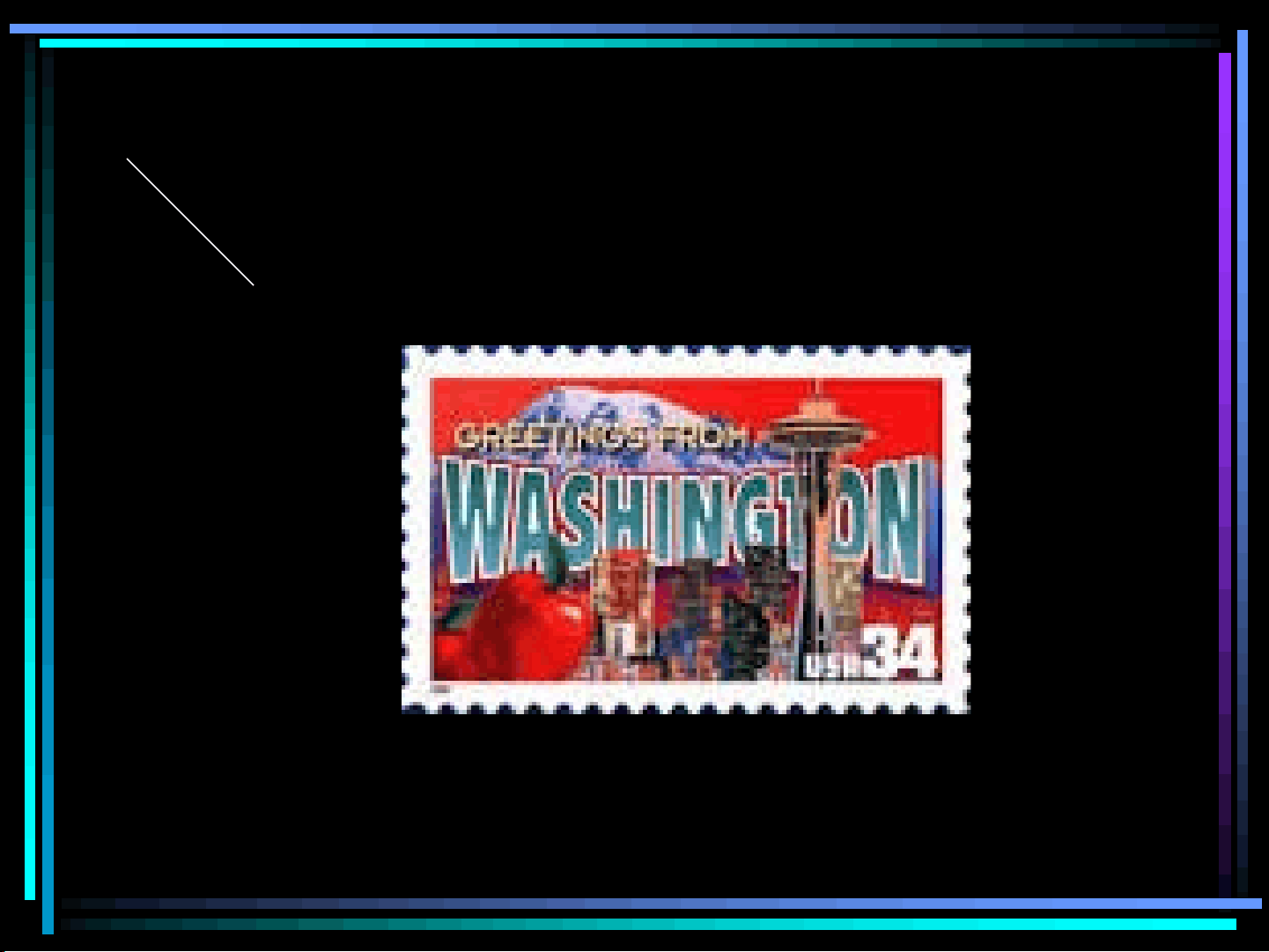
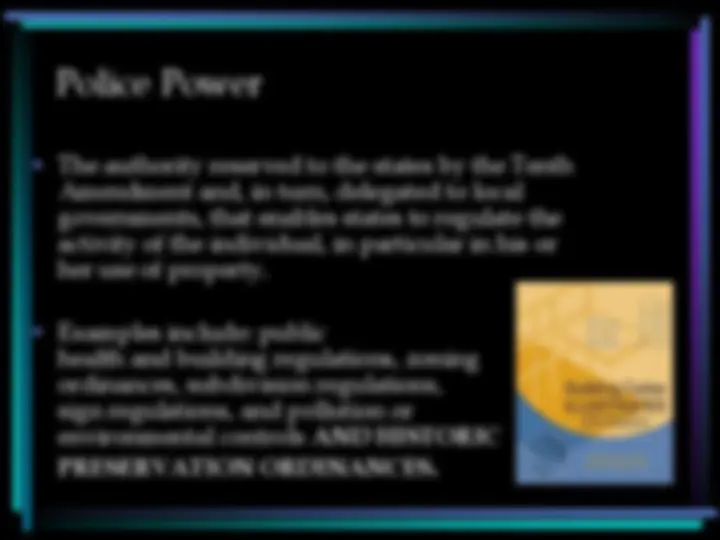
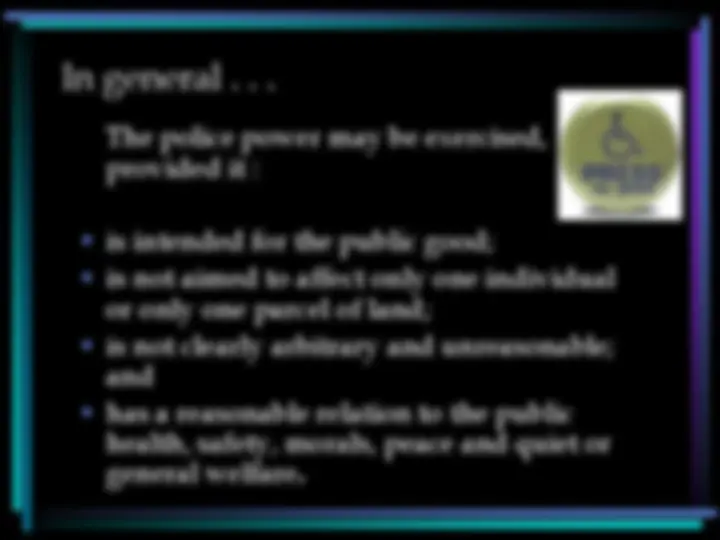

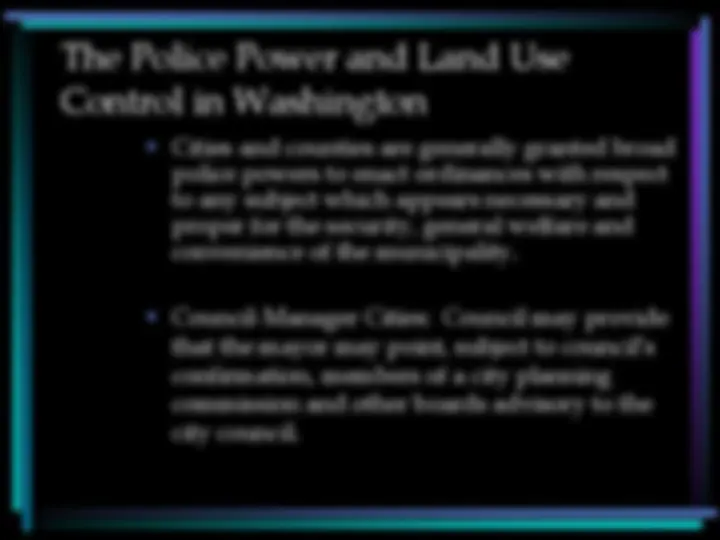
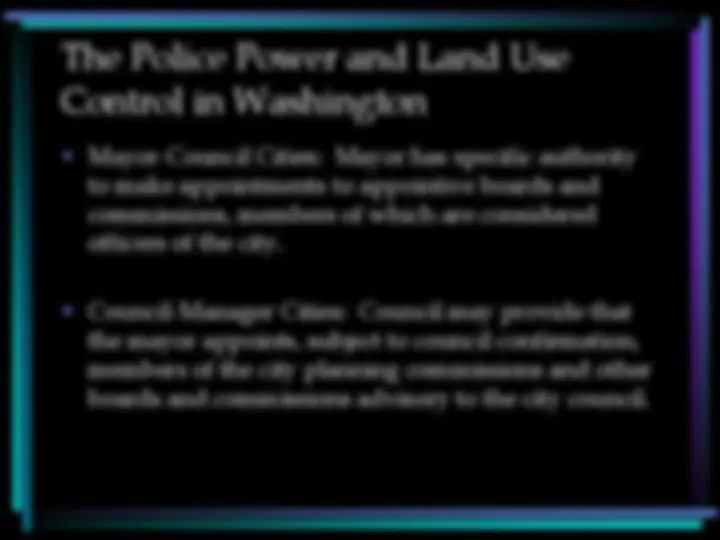
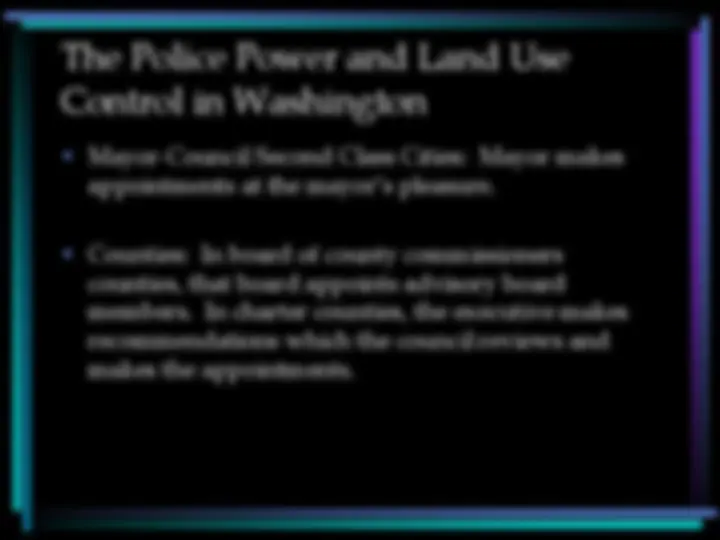
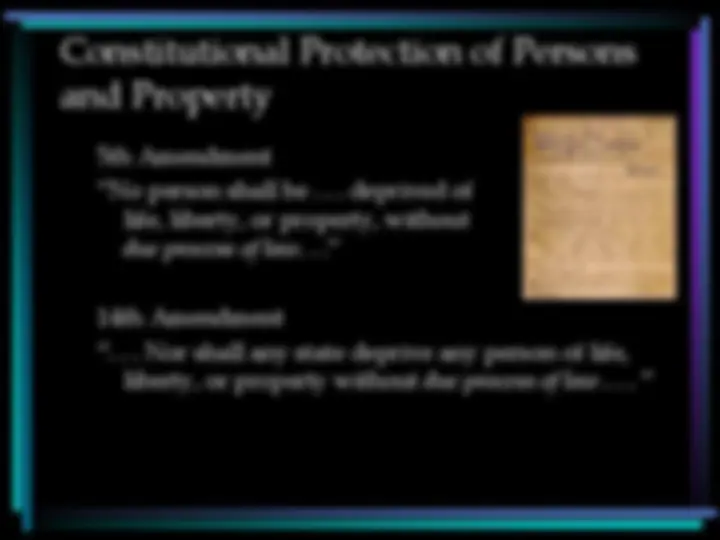
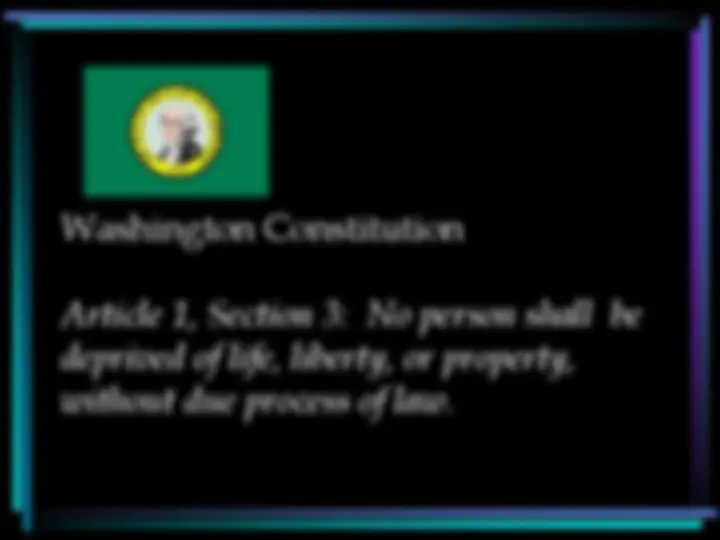
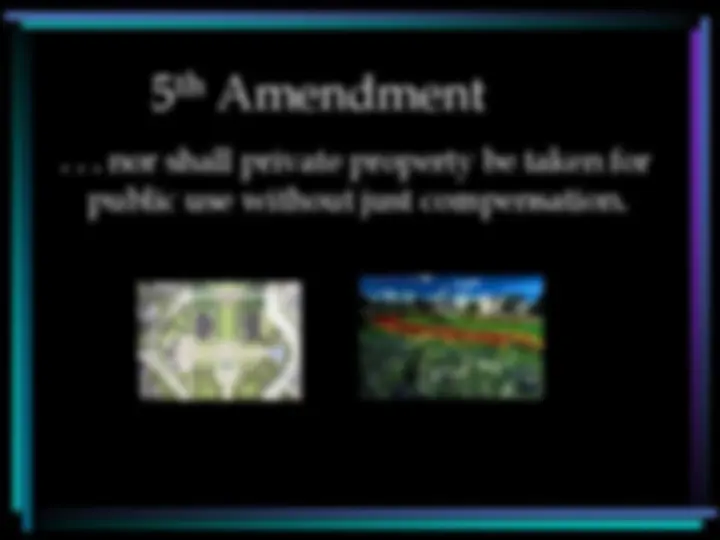
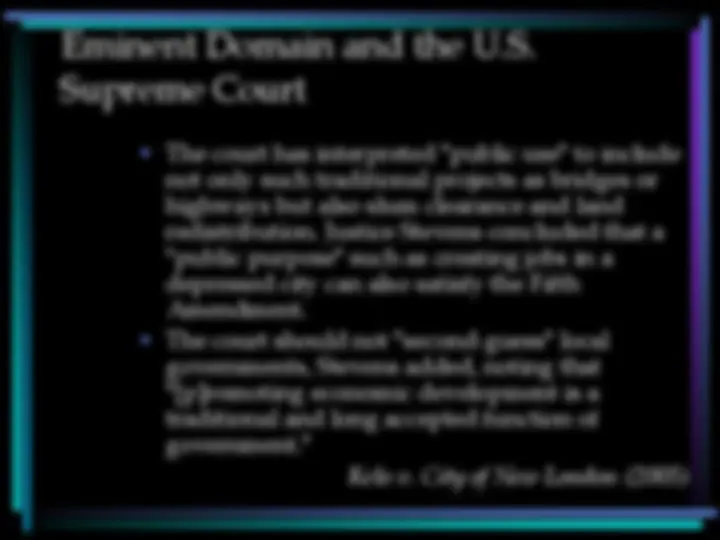
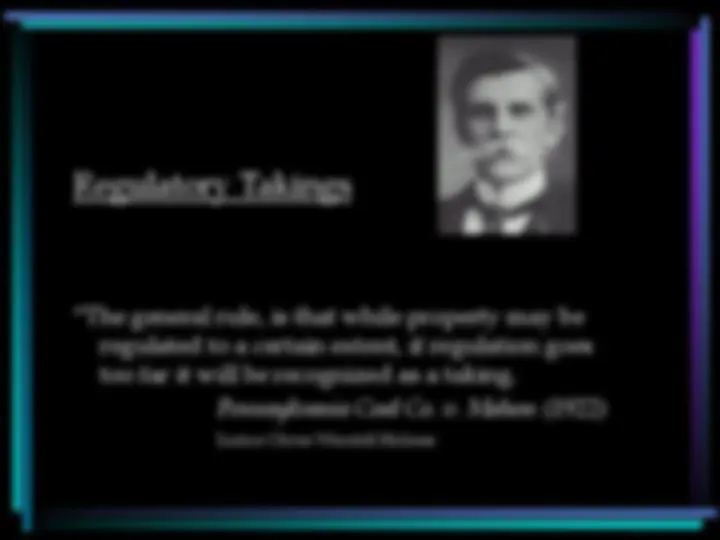
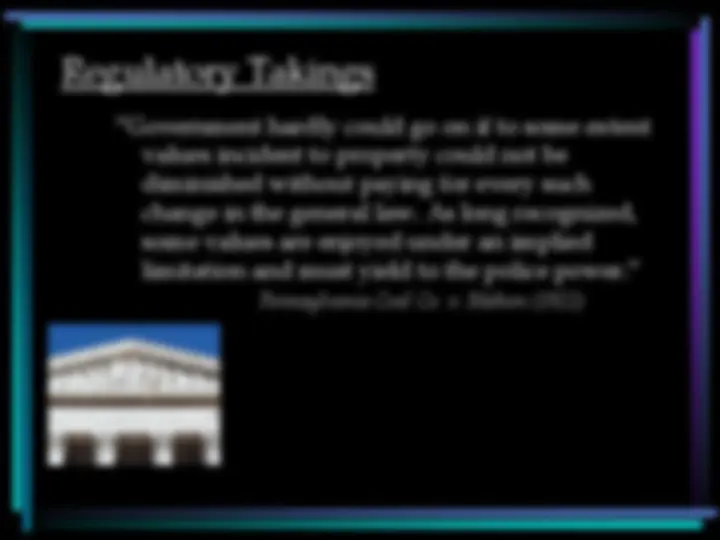
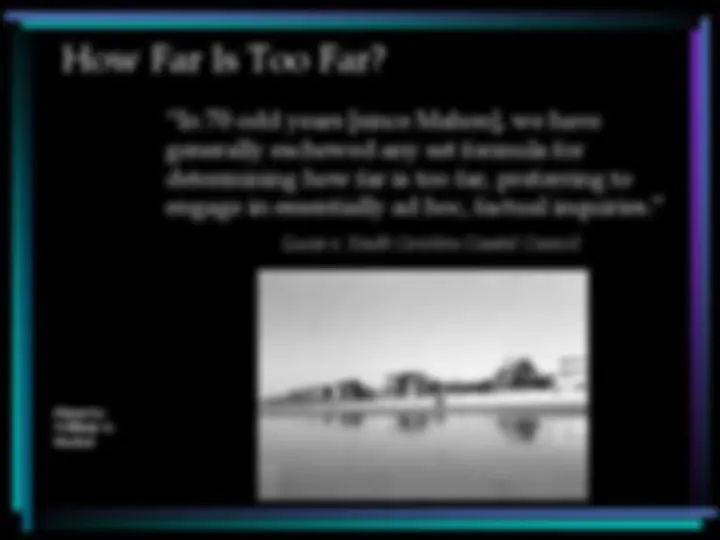
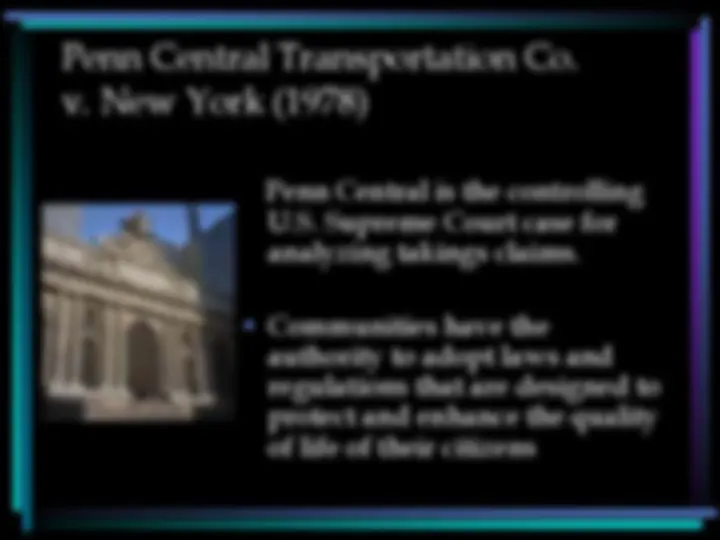
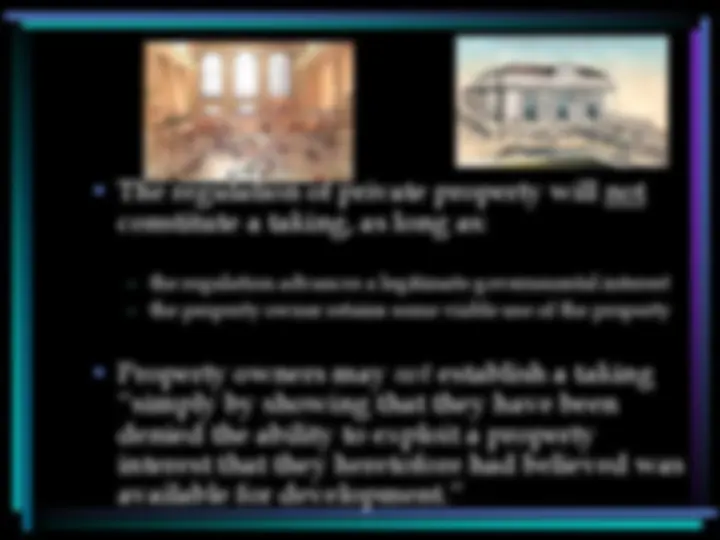
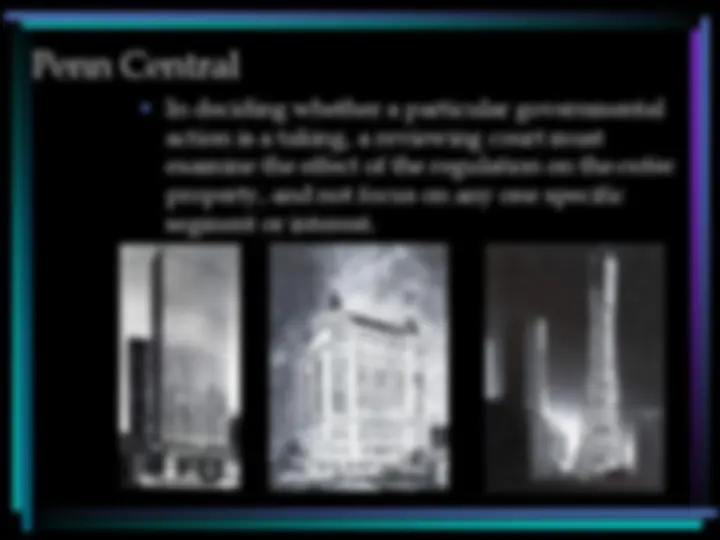
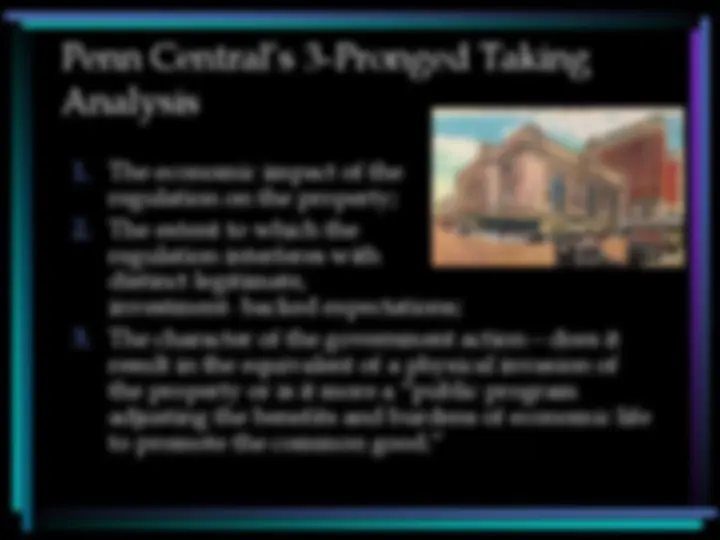
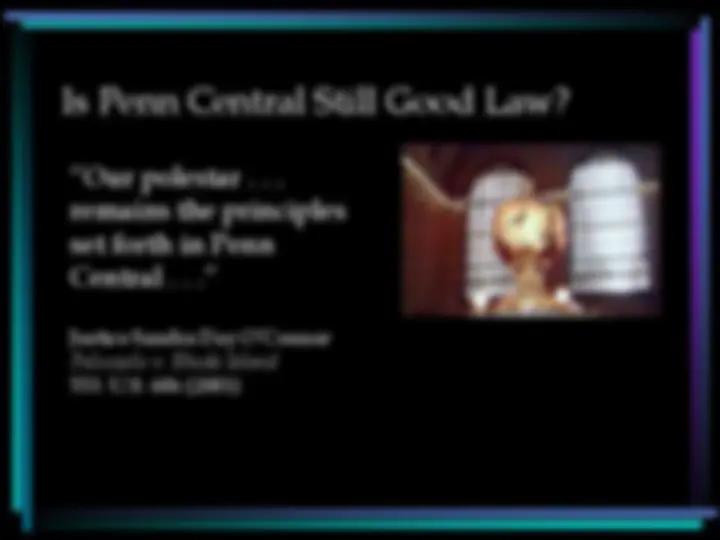
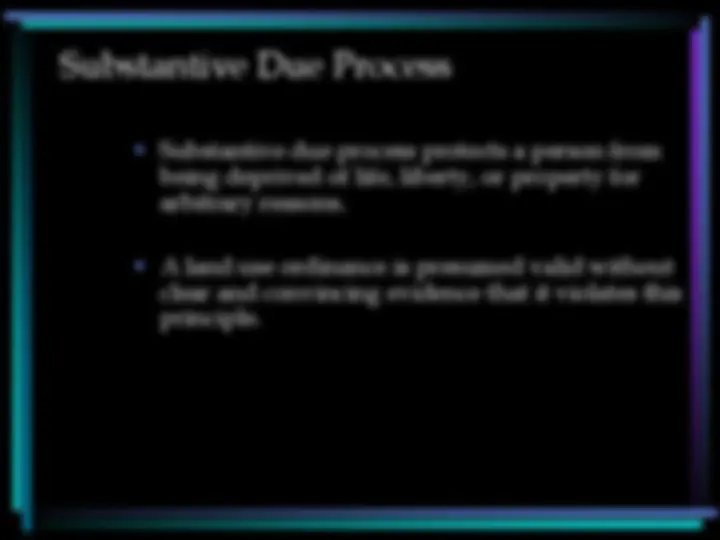
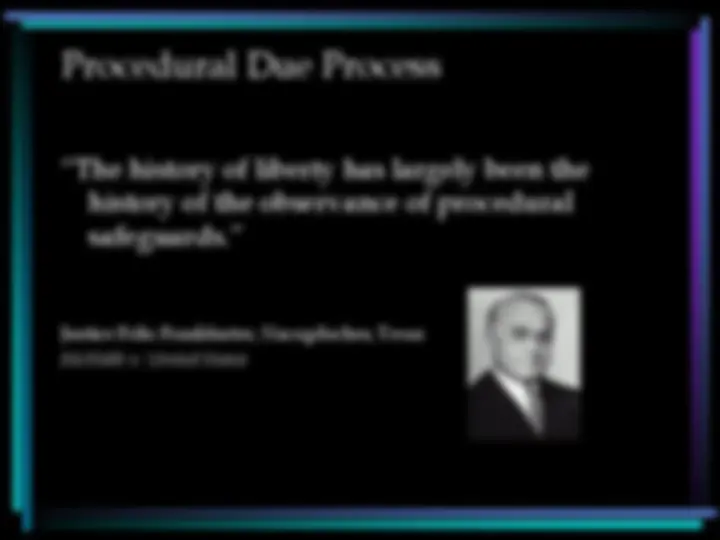
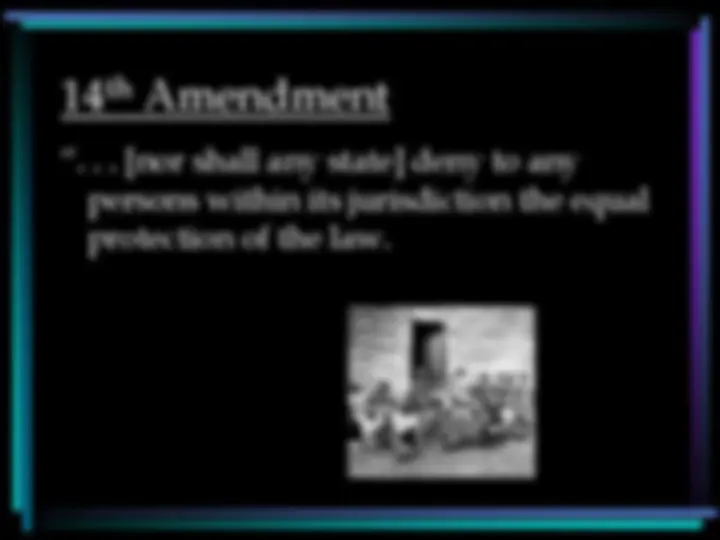
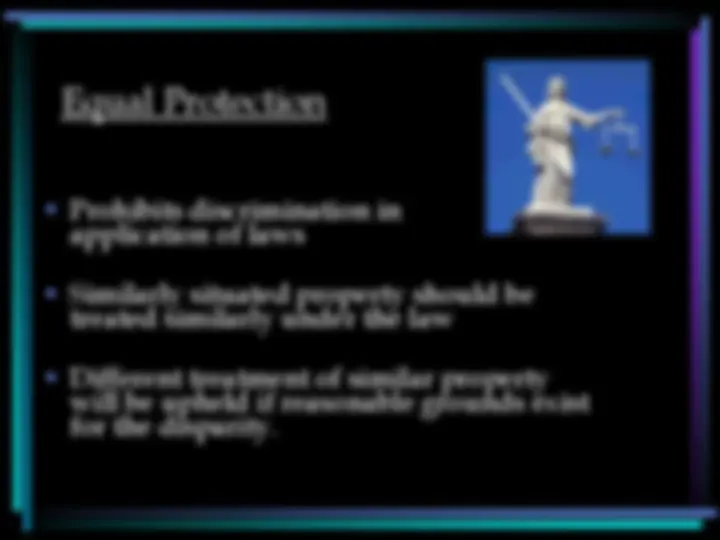
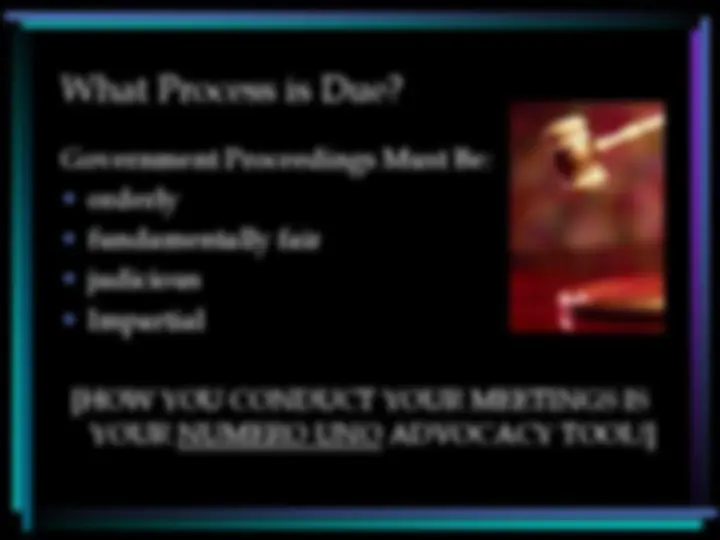
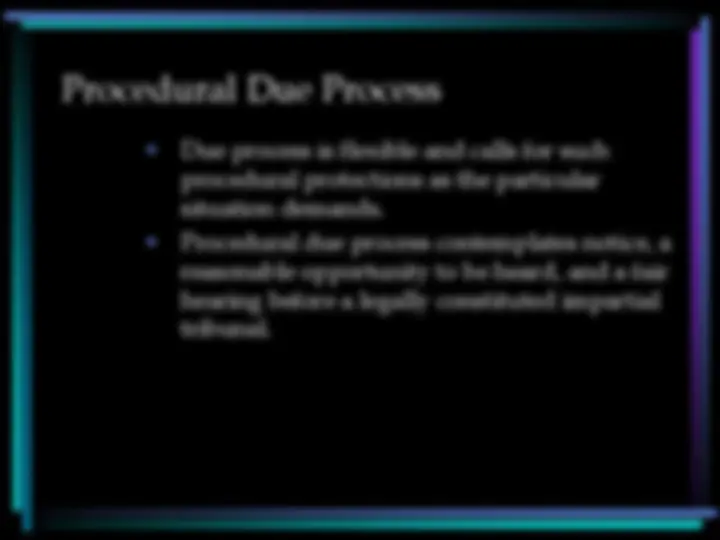
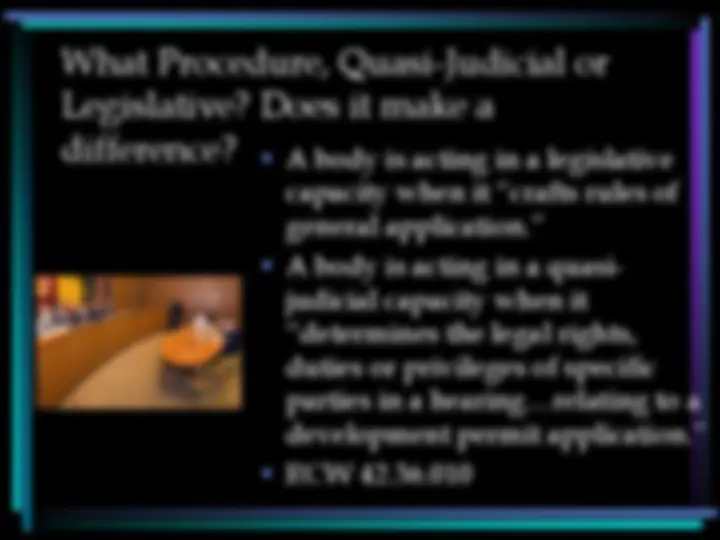
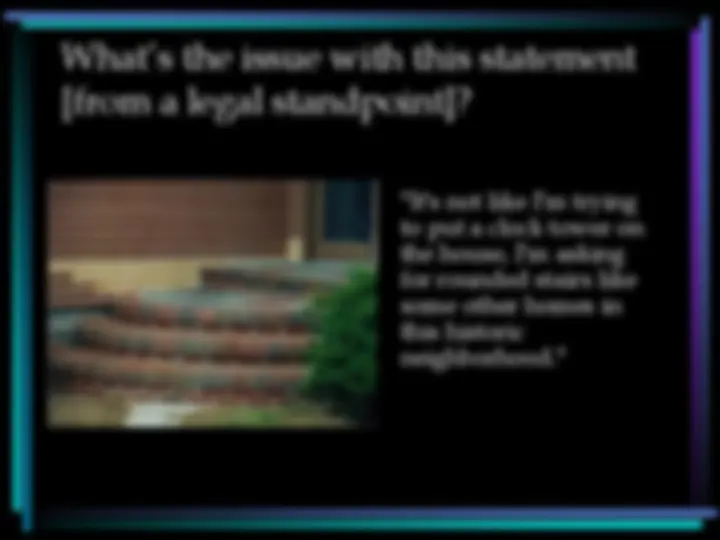
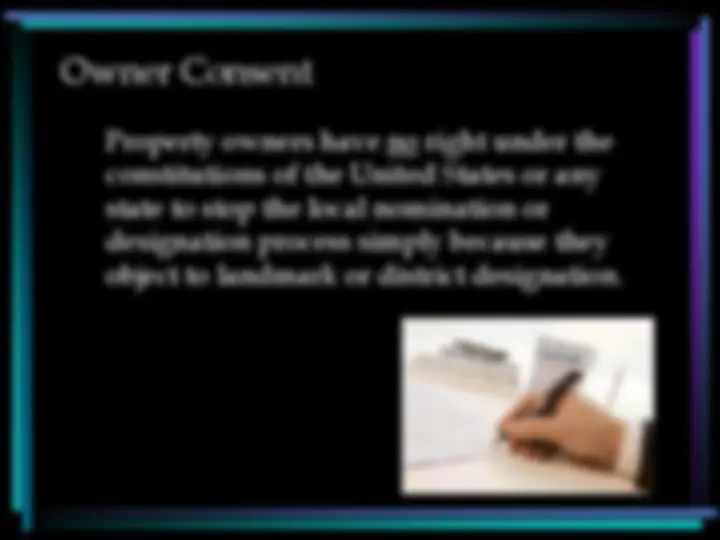
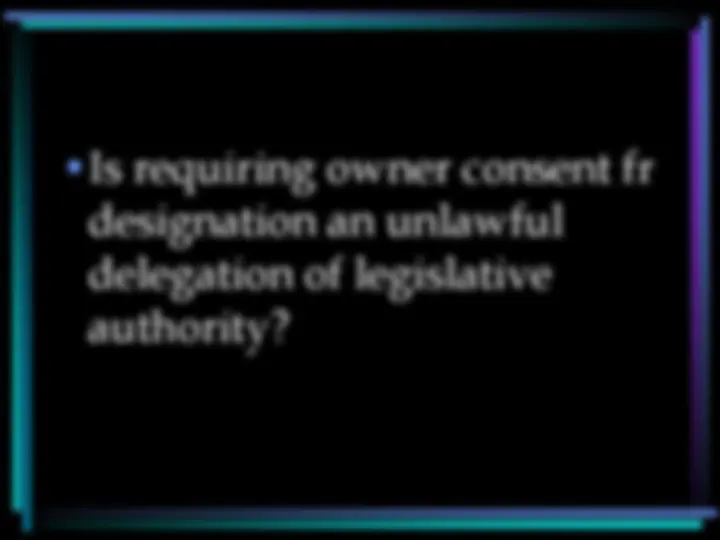
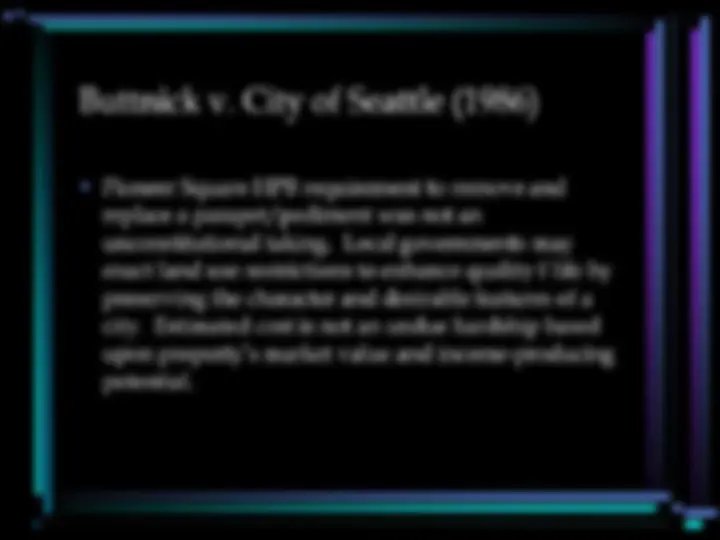
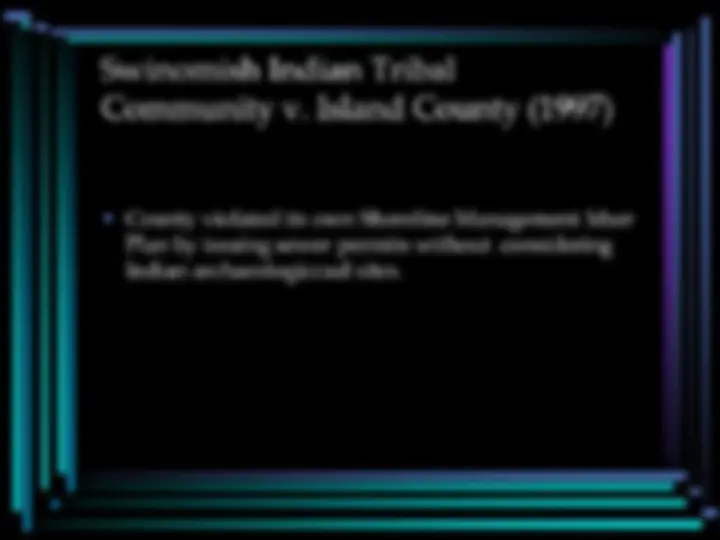
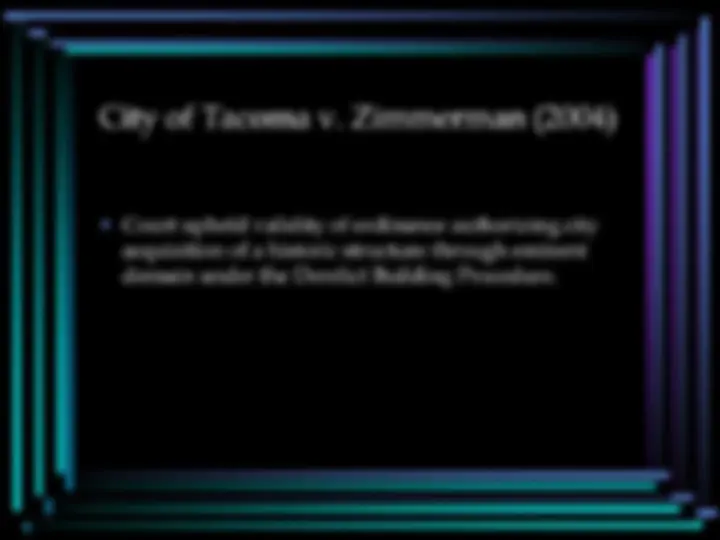
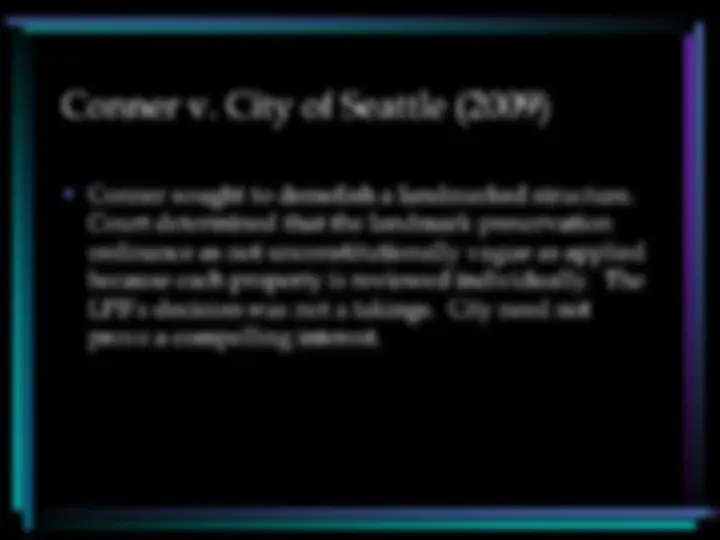
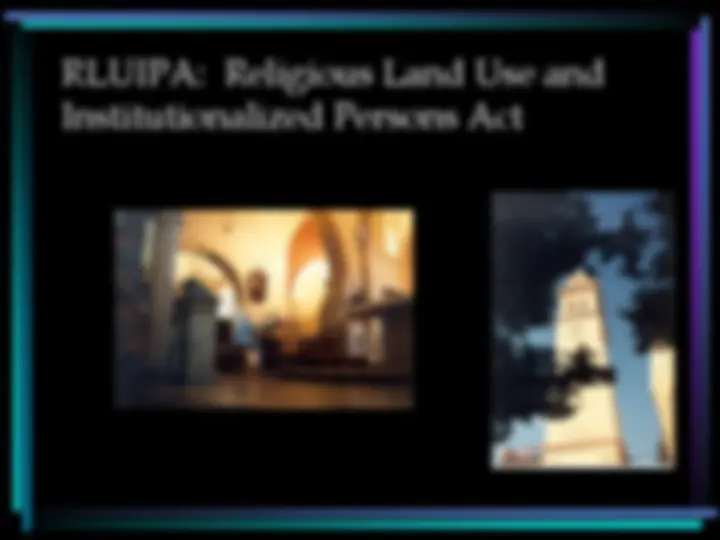
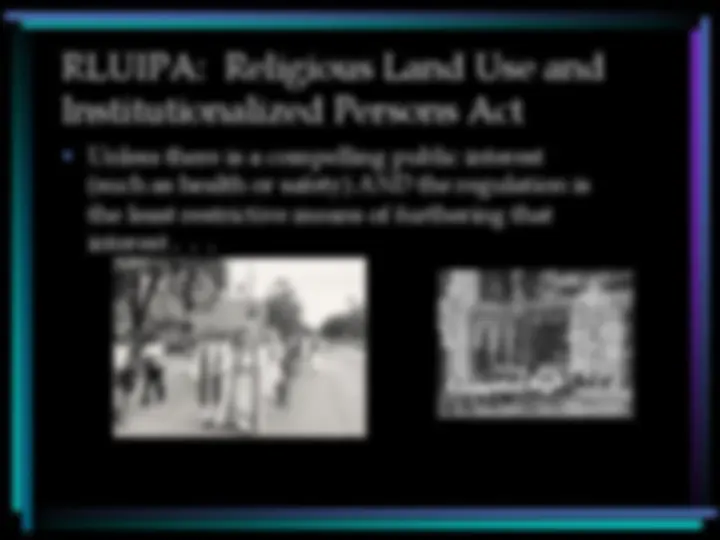
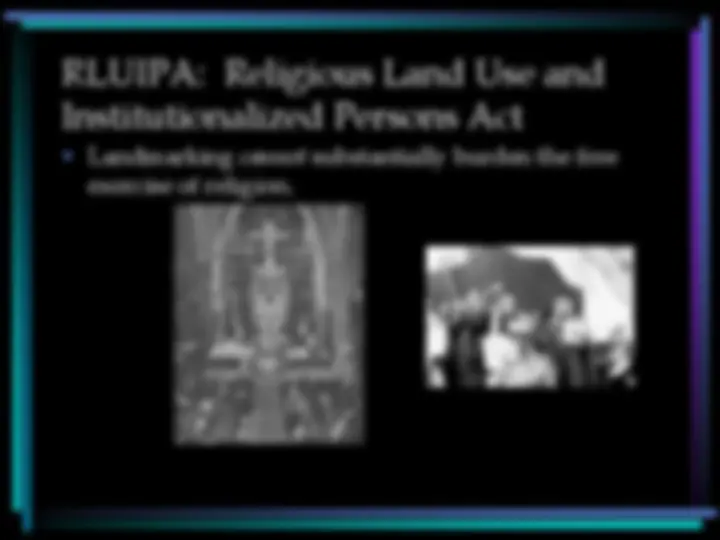
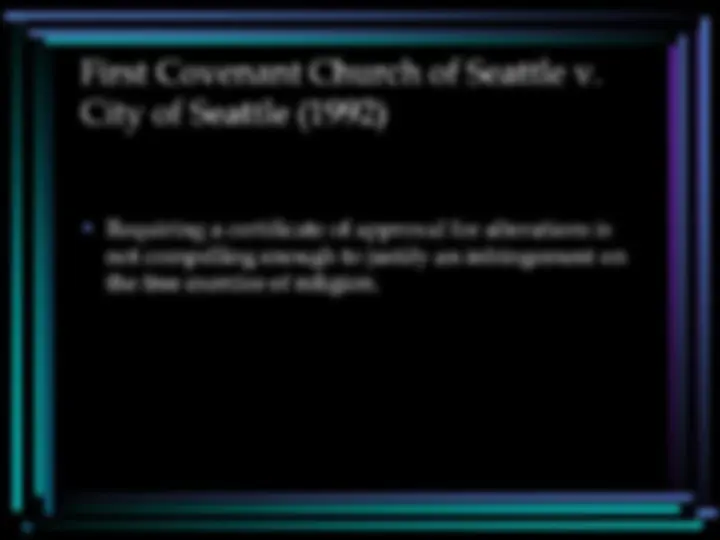
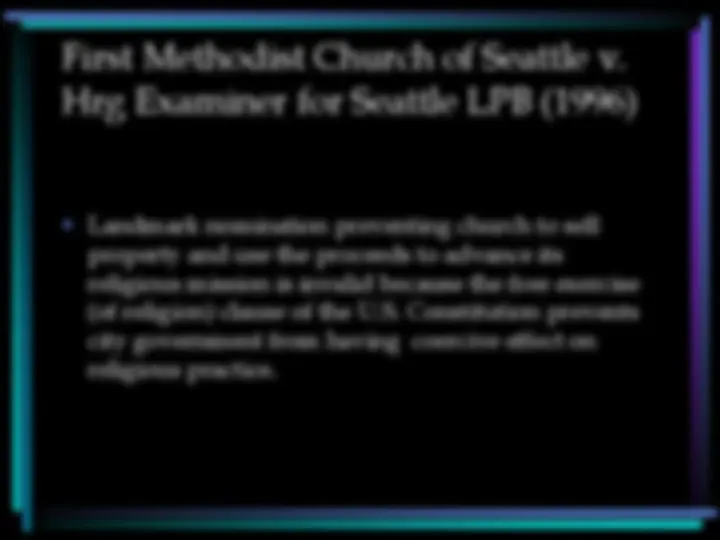
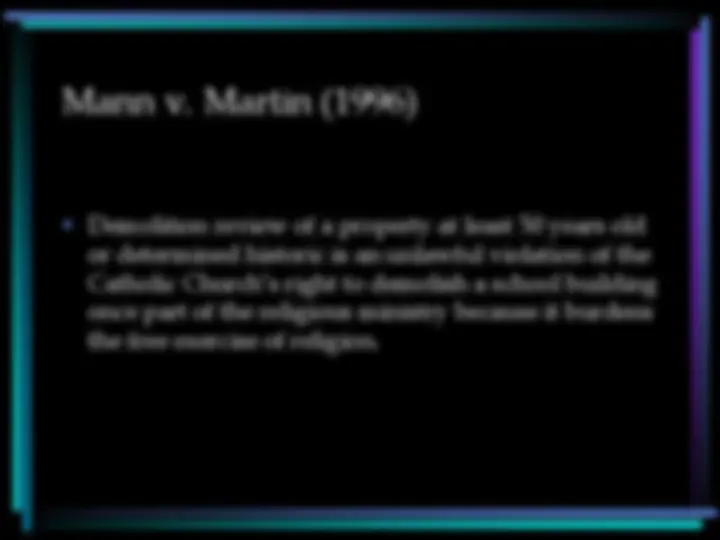



Study with the several resources on Docsity

Earn points by helping other students or get them with a premium plan


Prepare for your exams
Study with the several resources on Docsity

Earn points to download
Earn points by helping other students or get them with a premium plan
Community
Ask the community for help and clear up your study doubts
Discover the best universities in your country according to Docsity users
Free resources
Download our free guides on studying techniques, anxiety management strategies, and thesis advice from Docsity tutors
The legal framework surrounding police power, land use control, and property rights in the context of Historic Preservation Ordinances in Washington. It covers the Tenth Amendment, the concept of the police power, and its application to public health and building regulations, zoning ordinances, sign regulations, pollution controls, and historic preservation. The document also discusses the Magna Carta, the Constitutional Protection of Persons and Property, and the concept of takings, including eminent domain and regulatory takings. It concludes with a discussion of the Penn Central case and its three-pronged taking analysis.
Typology: Lecture notes
1 / 47

This page cannot be seen from the preview
Don't miss anything!








































U. S. Constitution
Bill of Rights
James Madison
In general...
ASK:
Is there a rational basis for the city
council’s ordinance?
This doesn’t mean every person must
believe it makes sense, only a few
“rational” citizens.
“If the board’s decision is unwise but does not violate substantive due process, plaintiff’s remedy lies in the political arena; simply put, if unhappy, plaintiffs may campaign to throws the rascals out.”
The People ex rel. Klaeren v. The Village of Lisle , 316 Ill. App. 3d 770, 786 (2000)
The Police Power and Land Use
Control in Washington
The Police Power and Land Use
Control in Washington
appointments at the mayor’s pleasure.
counties, that board appoints advisory board members. In charter counties, the executive makes recommendations which the council reviews and makes the appointments.
Constitutional Protection of Persons
and Property
5th Amendment “No person shall be... deprived of life, liberty, or property, without due process of law.. .”
14th Amendment “... Nor shall any state deprive any person of life, liberty, or property without due process of law... “
Washington Constitution
Article 1, Section 3: No person shall be
deprived of life, liberty, or property,
without due process of law.
Washington Constitution
Article 2, Section 16: No private
property shall be taken or
damaged for public or private use
without just compensation
having first been made …
Takings
Regulatory Takings
“The general rule, is that while property may be
regulated to a certain extent, if regulation goes too far it will be recognized as a taking. Pennsylvania Coal Co. v. Mahon (1922) Justice Oliver Wendell Holmes
Regulatory Takings
“Government hardly could go on if to some extent values incident to property could not be diminished without paying for every such change in the general law. As long recognized, some values are enjoyed under an implied limitation and must yield to the police power.” Pennsylvania Coal Co. v. Mahon (1922)